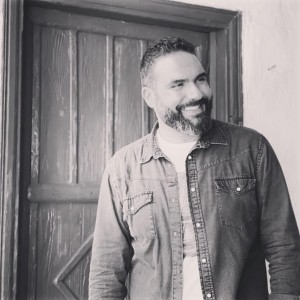
“I love the Lord, for he heard my voice;
he heard my cry for mercy.
Because he turned his ear to me,
I will call on him as long as I live.”
– Psalm 116:1-2
Listening is a great function of the human mind, linked to its other functions such as thinking, speech, will and imagination. It means listening silently, attentively, consciously, accurately, patiently, and respectfully, to what others say, to create the possibility of receiving and accepting their thoughts clearly, understanding the way and meaning of their thinking and feeling, and knowing how to respond to it, discuss it, accept it, compromise it, agree with it on common understandings or sometimes totally disagree. All of that in order to avoid any misunderstanding and alienation and violence, in any conversation or dialogue regarding any subject.
This leads me to the following question:
To what extent do people – politicians, religious leaders, community leaders, co-workers, etc.- truly listen to each other in their conversations and dialogues?
The act of Hearing consists of the superficial meaning of deep listening, and of course, is a prerequisite for listening. We all hear spontaneously, naturally, without having the need to “think” as when listening. Listening is much more difficult than speaking, and it requires a greater mental effort than speaking, combining the activity of the will, the mind and the heart, in order to patiently endure silence, so that we can receive the others’ message, and create the possibility of communicating with them, seriously, transparently, effectively and positively.
In Lebanon, my home country, because of sadness, worries, anxiety, frustration, problems, chaos, and unknown future, every person has something to say, and urgently requires others to listen to it. Most people, even in intimate and private settings (Family, Church, work, etc.), speak at once and at the same time, and no one listens.
In all public places, at home, at work, etc. people just want to talk, and no one wants to listen. Even the salutation or asking the simple question: “How are you today?” has become mechanical, and no one will wait for an answer or is willing to listen to the real and true answer.
Even in spiritual matters, we say prayers constantly and in abundance to God, and do not remain silent for a moment in order to listen, we don’t put ourselves in an atmosphere of contemplation, acceptance and humility, to the hidden voice of God, the voice of the living conscience in the heart of every human being.
Who can listen with simple humility, purity of heart and intention, keen attention, sincerity, patience, and love?
Who can surpass himself and move from individualism to plunge into the adventure of the communal dimension?
Born in Lebanon, I was raised in a Catholic family that values bonds and worships God in a humble way. In 2016, I took the decision to pursue the seminary life and follow my spiritual call. I joined the Maronite Seminary with the plan of becoming a priest. In 2018, through an encounter with an Episcopal pastor friend who is serving the Church in the United States, I had started to learn about the Lutheran teachings and familiarize with its core values revolving around forgiveness and reconciliation, dignity, compassion and justice, inclusion and diversity, courage and openness to change and faithful stewardship of God’s creation and gifts. I am currently a student at Pacific Lutheran Theological Seminary (PLTS) and contributing in the formation of a new Synodically Authorized Worshiping Community, an Afghani, Arab and Middle Eastern Ministry in Sacramento CA, within the Sierra Pacific Synod.
- Charbel Zgheib
Pacific Lutheran Theological Seminary (PLTS) Student


